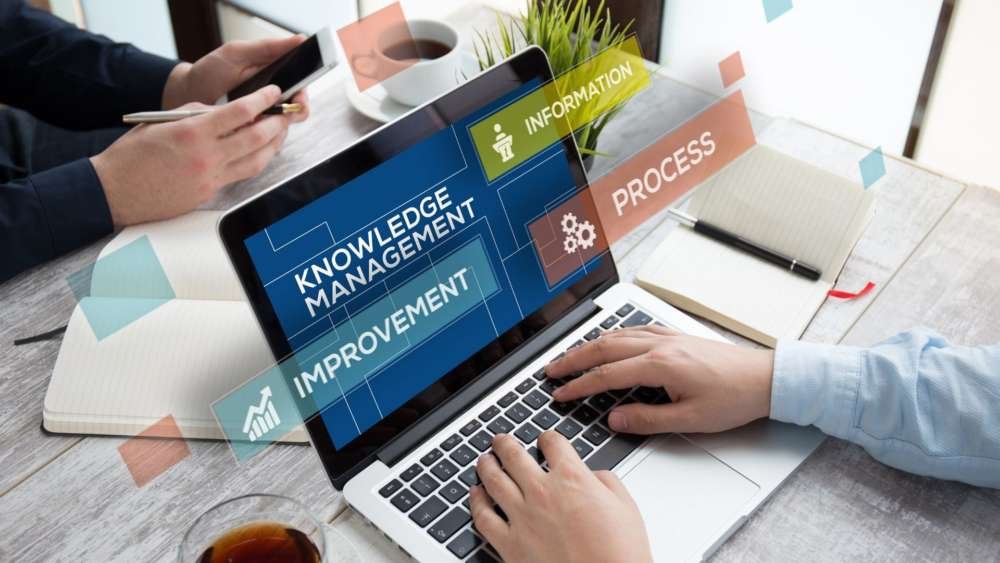Which Knowledge Management Strategy Works for Your Company in the Time of Covid-19
Published by linker 5
Posted on July 9, 2020
5 min readLast updated: January 21, 2026

Published by linker 5
Posted on July 9, 2020
5 min readLast updated: January 21, 2026

By Mostafa Sayyadi
Knowledge can be classified into individual and collective knowledge . Executives recruit followers based on their individual knowledge which refers to the individual’s skills, prior-knowledge, and proficiencies or sometimes referred to competencies. Collective knowledge, on the other hand, has been defined, by Sharon Matusik, as “organizing principles, routines and practices, top management schema, and relative organizational consensus on past experiences, goals, missions, competitors, and relationships that are widely diffused throughout the organization and held in common by a large number of organizational members”. Thus, collective knowledge is part of the executive’s protocol and comes fairly natural at the higher echelons of the organization. Executives follow Thomas Davenport and Laurence Prusak’s concern that concludes that if an executive cannot inspire its followers to share their individual knowledge with others, then this individual knowledge is not valuable to the organization. Therefore, individual knowledge can become a valuable resource by developing an organizational climate of openness for members to exchange their ideas and insights.
Executives still wonder where is knowledge and how can it be captured, utilized, and enhanced when it comes to decision-making. Managing knowledge is not anything new, scholars have considered the various processes involved. Executives embrace the process perspective because it takes a task-based approach by translating the management of knowledge into various organizational processes. Accordingly, the process perspective develops a firm-specific approach by which organizational knowledge provides a significant contribution to business objectives through the context-dependent way it is managed. Process perspective can also help organizations identify their inefficiencies in each process, and subsequently recover them on an instantaneous basis which enables executives to prevent further operational risk.
A good example of this, executives can look at three step processes of knowledge accumulation, integration, and reconfiguration. This model to managing knowledge reflects a more strategic and practical perspective, as it is process oriented and most applicable in the context of leading organizations. The key point in this model is the knowledge accumulation section coupled with knowledge integration and reconfiguration to ensure that the knowledge is actually helping companies exchange knowledge to overcome challenging situations in the time of Covid-19. In this model, organizational knowledge, firstly, is accumulated by creating new knowledge from organizational intellectual capital and acquiring knowledge from external environments. In doing this process, executives can particularly develop a workplace which is effective in:
Secondly, knowledge is integrated internally to enhance the effectiveness and efficiencies in various systems and processes, as well as to be more responsive to market changes. In doing this process, executives can particularly develop a workplace which is effective in:
Thirdly, the knowledge within organizations needs to be reconfigured to meet environmental changes and new challenges in the time of Covid-19 and at the same time should not be leaked to the competition in any shape or form unless agreed upon by senior executives. In this process, knowledge is globally shared with other organizations in the environment. Executives are aware of networking with more successful competitors is a key activity for companies to share successes and communicate best practices as a way of identifying new collaboration opportunities that can occur to meet Covid-19 challenges and keep the highest standard of operation in the industry. In doing this, executives can particularly develop a workplace which is effective in:
This article introduces an applicable model to manage knowledge in companies in the time of Covid-19. Executives now know that applying knowledge management using this model is advantageous and good sound strategic implementation. I walk exectuives through a process of knowledge accumulation, integrating knowledge into day-to-day operations, and a continuous reconfiguration to recognize the challenges associated with the corona virus pandemic and respond to them quickly and effectively.
Explore more articles in the Business category











